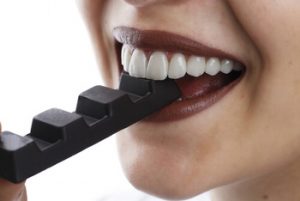A toothache can be more than just a sign of dental pain. Many people notice that when they have a toothache, they also start experiencing headache pain. This connection is not simply coincidence. Because of how nerves and surrounding muscles are linked in the face and head, a toothache can sometimes trigger associated headaches. Understanding this link is important not only for finding relief but also for protecting your long-term oral health.
How Tooth Pain and Headaches Are Connected
The main reason a toothache can cause headache pain lies in the trigeminal nerve. This nerve is one of the largest in the head and is responsible for carrying sensations from your face, teeth, and jaw to your brain. When dental issues such as tooth decay, gum disease, or an abscessed tooth irritate this nerve, pain signals can radiate beyond the mouth and cause severe headaches.
 Referred Pain and Its Role
Referred Pain and Its Role
Referred pain happens when discomfort is felt in a different part of the body than where it originates. A severe toothache in the upper teeth, for example, can sometimes trigger pain signals that the brain interprets as headache symptoms. This is why toothache and headache often show up together.
Jaw Muscles and Muscle Tension
Another pathway between dental pain and head pain involves the jaw muscles. When you grind your teeth or clench your jaw, the surrounding muscles can become tense. This muscle tension can spread to the temples, leading to tension headaches. Temporomandibular joint disorders (TMJ disorders) also contribute to jaw pain and can trigger frequent headaches.
Common Dental Issues That Can Trigger Headaches
Several dental problems may set off both tooth pain and headache pain. Some of the most common include:
Tooth Decay and Cracked Teeth
When tooth decay is left untreated, it can cause intense pain that radiates to the head. Similarly, cracked teeth expose sensitive inner layers, leading to throbbing pain that may cause headache symptoms.
Gum Disease and Dental Infections
Gum disease, if left untreated, can progress to more severe dental infections. These bacterial infections may spread, causing dental abscesses. An abscessed tooth can produce abscessed tooth pain so intense that it leads to severe headaches. In rare cases, a dental abscess that is left untreated can result in dangerous complications such as cavernous sinus thrombosis.
Impacted Wisdom Teeth
Impacted wisdom teeth press against surrounding muscles and nerves. This pressure can cause toothache and headache symptoms, jaw pain, and even swollen lymph nodes.
Teeth Grinding
Habitual teeth grinding, especially at night, can cause severe toothache and frequent headaches. Over time, this habit wears down teeth and stresses the jaw muscles.
Sinus Infections and Upper Teeth Pain
The roots of upper teeth sit close to the sinus cavities. A tooth infection in this area may cause head pain, while sinus infections can also trigger toothache-like symptoms.
Symptoms to Look Out For
Recognizing when a toothache might be the cause of your headache can help you seek timely care. Common signs include:
- Throbbing pain that spreads from the teeth to the temples or forehead
- Severe headaches paired with dental issues such as cavities or cracked teeth
- Facial pain that worsens when chewing or biting
- Tooth sensitivity to hot or cold foods
- Swelling around the jaw or swollen lymph nodes near an infected tooth
- Headache symptoms that improve once tooth pain is relieved
When to Seek Prompt Dental Care
Tooth pain and headaches should not be ignored. If you notice severe pain that does not go away, it may be due to an abscessed tooth, tooth infection, or another serious dental issue. Left untreated, these conditions may worsen and even spread infection to surrounding muscles, nerves, and blood vessels.
Seeking prompt treatment from a dental professional can prevent complications and help restore a pain free smile. A dentist will examine your oral health, provide a proper diagnosis, and recommend treatment such as fillings, root canals, antibiotics, or dental extractions when necessary.
Treatment Options to Alleviate Pain
The right treatment depends on the underlying cause of the dental pain. Some approaches include:
- Dental fillings or crowns for tooth decay or cracked teeth
- Root canal therapy to save an infected tooth and relieve abscessed tooth pain
- Antibiotics to control bacterial infection
- Extraction for severely damaged or impacted wisdom teeth
- Mouthguards for patients who grind their teeth frequently
- TMJ therapy and gentle jaw exercises to ease jaw pain and reduce tension headaches
Addressing the root cause of toothache not only helps alleviate pain but also reduces the risk of chronic headaches and further dental issues.
Preventive Measures for Better Oral and Overall Health
Preventing toothache and headache symptoms often starts with maintaining strong oral health. Practical steps include:
- Brushing and flossing regularly to avoid tooth decay and gum disease
- Visiting a dental professional for regular checkups and cleanings
- Eating a balanced diet and limiting sugary foods that promote tooth decay
- Using stress reduction techniques to minimize teeth grinding and muscle tension
- Wearing protective mouthguards if you grind your teeth at night
- Seeking prompt dental care at the first sign of tooth sensitivity, swelling, or pain
The Link Between Dental Care and Headache-Free Living
Many people are surprised to learn that dental problems can contribute to severe headaches or even chronic headaches. Ignoring these issues means the pain signals will continue, and the discomfort may spread to surrounding muscles and nerves. With proper dental care and preventive measures, it is possible to protect your oral health, reduce headache pain, and enjoy a more pain free life.
Final Thoughts
So, can a toothache cause a headache? The answer is yes. Because of the intricate connection between the teeth, jaw muscles, trigeminal nerve, and surrounding structures, tooth pain can easily radiate into head pain. From tension headaches caused by jaw clenching to severe headaches triggered by abscessed tooth pain, the link is strong.
The good news is that prompt dental care, preventive measures, and attention to oral health can help you break the cycle of toothache and headache. By addressing the root cause of dental pain, you can work toward a healthier mouth and a life with fewer headaches.
References:
https://www.verywellhealth.com/link-between-toothache-and-headache-4590314
https://my.clevelandclinic.org/health/diseases/10957-toothache
https://www.healthline.com/health/migraine/migraine-tooth-pain
https://lifemd.com/learn/toothache-and-a-headache-on-one-side-what-should-i-do
https://www.webmd.com/oral-health/toothache
https://www.healthdirect.gov.au/toothache-and-swelling




























0 Comments